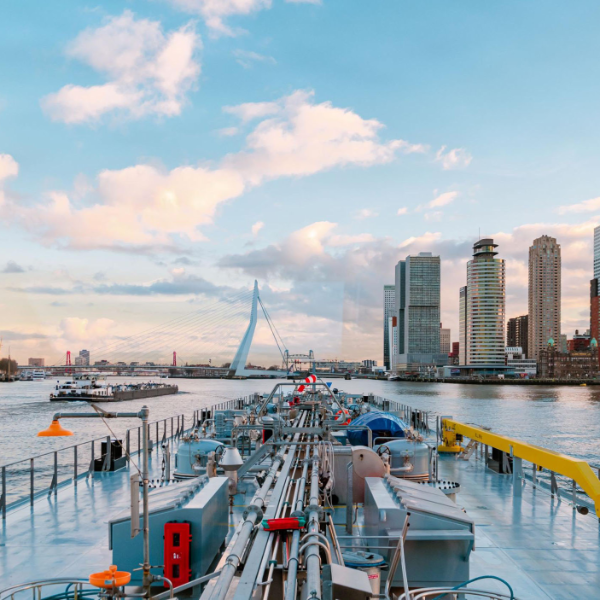Corridor management helps make inland shipping more sustainable

Corridor management helps make inland shipping more sustainable
Inland shipping is one of the most sustainable modes of transport in the logistics chain. Under assignment to Rijkswaterstaat, Witteveen+Bos conducted a study into opportunities for making the inland shipping sector more sustainable by means of corridor management.
The study focused on optimising logistics by improving the coordination of locks and bridges’ operating times. To determine the potential impact of corridor management on the emissions of inland shipping, a number of shipping simulations were carried out using SIVAK, a software package for simulating traffic flows near civil engineering structures. The sustainability impact of adjusting sailing speeds to bridge and lock operating times was also analysed. The underlying principle in this was that when ships are informed in advance of the time a bridge or lock will be opened, they can adjust their sailing speed accordingly. This results in reduced emissions on waterways due to lower sailing speeds and shorter waiting times at locks. Two routes were reviewed as part of the study: Amsterdam-Tiel and Rotterdam-Antwerp. Two scenarios were developed and investigated to assess shippers’ readiness to make the necessary adjustments.
Contact
